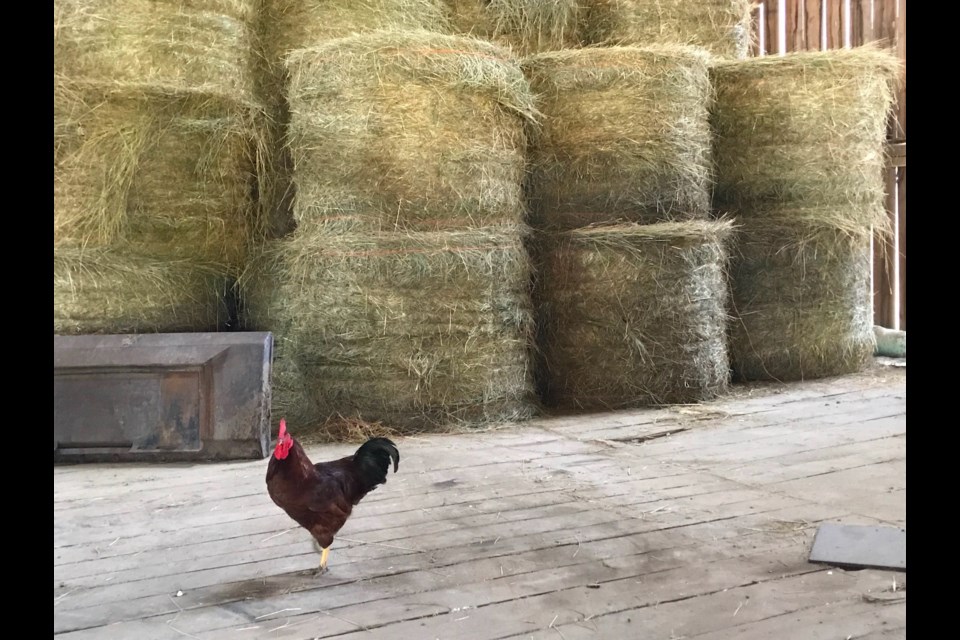It’s no surprise that Guelph and Wellington are considered agri-food hubs.
Statistics from the Ontario Ministry of Agriculture, Food and Rural Affairs show that 75 per cent of Wellington's agricultural land is considered “class 1 soil.”
“We have some of the best soil in Ontario,” says Christina Mann, coordinator of Taste Real, a local organization that promotes local food and farms in an initiative to position Wellington County as a culinary food destination.
Wellington County’s main commodities alone produced in excess of $744 million in 2011 (including dairy, livestock and poultry, grains and produce).
Additionally, Wellington boasts the highest number of farms in Southwest Ontario – 2,348 in 2016 – and provided 6,000 local jobs in 2014, added Mann.
In August a group of food and travel writers, photographers, marketers and garlic lovers gathered at Whole Circle Farm (WCF) between Rockwood and Erin to tour the farm, learn more about Wellington County agriculture and taste their way through the harvest season’s peak with a lunch attentively prepared with locally-sourced ingredients by Elora Brewing Company chef Ben Sachse.
The event was part launch for the 2017 Toronto Garlic Festival and part promotional with Taste Real.
Launched in 2011, Taste Real works with local farm partners and food businesses to provide branding, marketing and distribution assistance, through initiatives and events run throughout the year such as culinary walking tours and rural romps.
“Taste Real represents businesses along the local food value chain, including farms, farmers’ markets, local food retailers, processors and restaurants. We currently work with 48 local farms,” said Mann.
Those farmers are on the Local Food Map, which is distributed free throughout the area.
It’s a testament to Wellington’s fertile lands, or “terroir”, that Peter McClusky, founder of the popular garlic festival, continues to make the short but harried commute down the 401 to plant and harvest 1,000 heads of several varieties of hard-neck garlic at WCF each year since 2010.
McClusky is eager to share his passion for the land where he had a life-changing experience after leaving his 15-year marketing career in New York City. McClusky left it all behind to get back to food and source for an approximate year-long internship at the farm under the mentorship of farm steward Johann Kleinsasser and his wife Maggie.
The Kleinsassers have run the commune-style WCF since 2002 and rely on interns hired through the CRAFT (Collaborative Regional Alliance for Farmer Training) program to help out as they provide them with an immersive, ecological farming experience.
Johann professes he “knew nothing about organic gardening” until he moved to Ontario in 1980 and met an English gardener that “opened his eyes” to the notion. Once that physical and spiritual shift occurred, Johann said, he had no interest in conventional farming.
“A farm is a living organism; each part acts as a body or whole – the forest, wetland, swamp – every aspect is important; each does its task. Everything is connected and related,” Johann says.
“We’re focusing on breeding seeds; we grow buckwheat, oats and rye to replenish the soil with different roots systems… We don’t need herbicides.”
Although many small farms are moving away from organic certification because of the high costs involved, Mann says, a majority run on the same principle as the Kleinsassers’s: soil is wealth, and good, healthy soil improves taste.
In defense of higher costs of local food, Mann is quick to counter.
“Yes, often locally grown food is more expensive. It’s important to remember the social-economic benefits of buying local and, of course, the quality and freshness factor. There are plenty of ways to make local food more accessible price-wise such as buying bulk freezer meats and buying in-season produce. Small changes, such as learning new food skills and decreasing household food waste, can often help an individual’s food budget and enable us to increase local purchasing,” says Mann.
A large part of Taste Real’s services includes getting food from farmer to consumer and many farms rely on customers visiting their farm stores.
Taste Real’s annual Fall Rural Romp, a free, self-guided farm and food tour, will be held Sept. 30 from 10 a.m. to 4 p.m.
For more information on Taste Real’s participating farms, events and initiatives, visit tastereal.ca, Twitter @tastereal or Facebook /tastereal.
